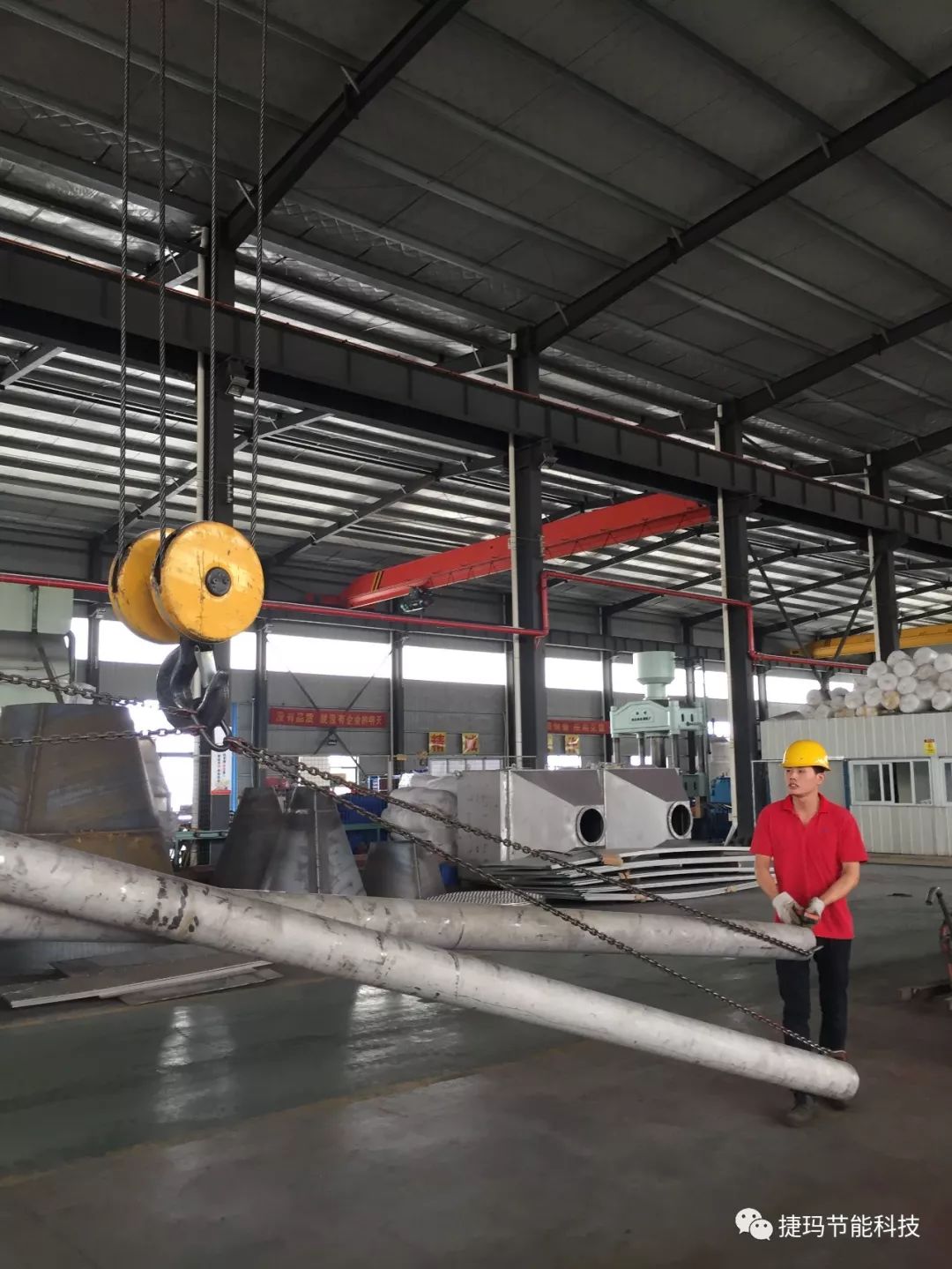For heat exchanger workshop on-site management, steel material leftover and waste is the biggest enemy. Because of waste, companies pay high production costs without knowing it; because of waste, five artisans could be assigned to the job where two personnel is already enough and capable; thus because of waste, companies pay higher labor costs. Any activity that cannot create value is considered a waste.
To minimize and eliminate waste in workshop on-site management, Jiema holds meetings to understand eight waste phenomena upon heat exchanger fabrication.

1. One of the eight wastes in workshop site management: waste of defects and repairs
The so-called waste of defective and reworked heat exchangers refers to the waste of time, manpower, and material resources that need to be reworked due to defective heat exchangers due to design, process, and operator errors, as well as the related losses caused by this.
This type of waste specifically includes: loss of materials, defective heat exchangers turning into scrap; loss of equipment, personnel and man-hours; loss of additional repairs and additional inspections; sometimes the need for remanufacturing, and damage to the company's reputation due to delayed delivery.
2. Two of the eight wastes in workshop site management: processing waste
The waste of processing is also called the waste of over-processing, which mainly includes two meanings: the first is redundant welds and overly precise processing. For example, the parts that actually require segment welding are fully welded (full welding), resulting in too many auxiliary parts. The second is that it requires too much operating time and auxiliary equipment, and also increases the waste of energy such as production electricity. In addition, it also increases the number of management hours.
3. The third of eight wastes in workshop site management: waste of actions
The phenomenon of waste of movements exists in the production line of non-standard heat exchangers. Common waste of movements mainly includes the following phenomena: too long idle time with both hands (as the saying goes: no work can be done), too long hesitation due to unclear processing procedures, Because it takes too long to confirm the receipt of materials and parts, the operating speed is relatively slow due to personal skills, and the completion amount per unit time is too low; communication with designers and managers is not smooth due to drawings, resulting in stagnant operating time, etc. The waste of movement results in unnecessary consumption of time and energy.
4. The fourth of eight wastes in workshop site management: transportation waste
Moving is an action that does not produce added value, and work that does not produce value is a waste. The waste of transportation is specifically reflected in the waste of actions such as placing, stacking, moving, and arranging, which results in waste of space required to move items, waste of time, and occupation of human tools and other adverse consequences.
Perhaps due to site issues, many managers believe that transportation is necessary and not a waste. Therefore, many people turn a blind eye to the waste of transportation, let alone eliminate it. In order to improve the so-called efficiency, workshops are equipped with manual forklifts or machine handling methods to reduce manual handling. This approach spends a lot of money to reduce the physical consumption of workers, but it does not actually eliminate the waste of handling itself.
5. Five of the eight wastes in workshop site management: waste of inventory
Enterprises produce to order, and reasonable inventory is necessary. If the inventory materials are not used for a long time and are shelved, such inventory is unnecessary and problematic. Such inventory is the source of excessive hidden costs for the enterprise.
For example, for materials specially ordered for some special orders, the remaining materials will become inventory after the order is completed; some regular orders of plates and pipes are purchased in large quantities, and due to changes in orders, the remaining materials will become inventory; some electromechanical components required for some orders Spare parts are in inventory due to quality problems or order changes and model changes; due to design changes, purchased materials cannot be used, etc. When funds are abundant and orders are large, the problem of inventory is covered up. Once funds are tight and delay the purchase of materials for other orders, or financial inventory, warehouse relocation, and material transfer, the problem of inventory waste will be completely exposed.
6. Six of the eight wastes in workshop site management: waste caused by completing orders in advance
The reasons for the order to be completed in advance are: first, the communication between marketing staff and customers is not in place; second, there is disconnect between market planning and production communication, and the actual required time of the customer's order is not grasped. The disadvantages of completing the order in advance: it squeezes out the time that really needs to be delivered, resulting in an increase in overtime costs due to the failure of other order delivery times to be completed; the storage space becomes smaller, increasing the waste of handling and accumulation.
7. Seven of the eight wastes in workshop site management: the waste of waiting
Waiting with nothing to do due to interruptions in the supply of production raw materials, unbalanced orders, and improper production planning is called the waste of waiting. If the amount of orders of a certain type is too concentrated in a certain period of time, and the connection between inventory and material procurement is not in place, and the preparation work is not sufficient, it will inevitably cause a waste of production waiting; furthermore, because the daily order changes are too large, production will Insufficient management and deployment will also cause personnel and equipment to be idle for a certain period of time; in addition, problems in the previous production process will result in nothing to do in the next process. In addition, problems in process connection due to individual differences in the skills of production personnel are also an important reason for waiting waste.
8. Eight of the eight wastes in workshop on-site management: Management waste
Management waste refers to the additional waste caused by waiting for management personnel to take corresponding countermeasures to remedy problems after they occur during the production process. Management waste is a problem caused by insufficient prior management. Scientific management should be quite foreseeable, have reasonable planning, and strengthen management, control and feedback as things progress, so that it can be improved to a large extent. Reduce the occurrence of management waste.
The above summarizes eight common wastes in workshop site management. Every employee in the workshop should have the awareness to eliminate waste: it is necessary to combine the implementation of cost target management with the responsibility system, strengthen cost accounting, strengthen management in all aspects of the production process, and manage every aspect involved in the production cost. An expense is detailed into the unit product cost, so that cost accounting can be carried out into the workshop, into the team, and into the headcount. Transform static cost control into dynamic control, forming a cost control pattern for all employees, the entire process, and all aspects, so that cost reduction can be implemented into the specific actions of each employee. Next, it is necessary to identify where waste exists in the process, and then use appropriate methods to eliminate the identified waste from technology, process, tooling, and personnel skills. Finally, repeat the above steps and implement continuous improvement measures to reduce waste.






